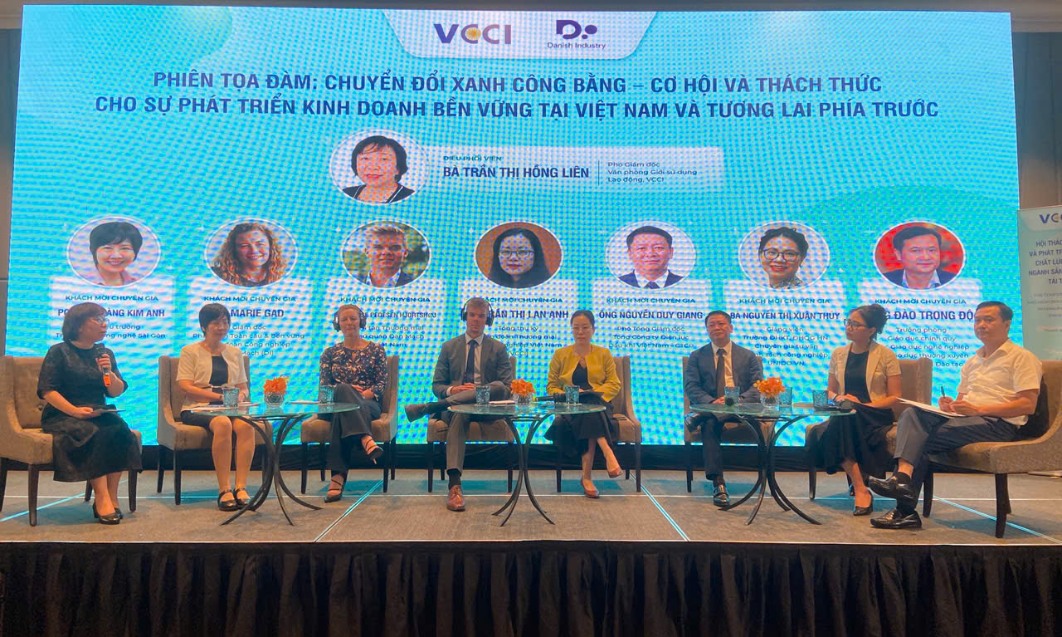HCMC – Vietnam is facing a serious shortage of skilled labor for green production and renewable energy, experts said at a seminar in Hanoi on September 16.
The event, themed “Green Transition and High-Quality Workforce Development in Manufacturing and Renewable Energy in Vietnam,” was co-organized by the Vietnam Chamber of Commerce and Industry (VCCI) and the Confederation of Danish Industry.
At the seminar, VCCI Vice Chairman Vo Tan Thanh said one of the biggest challenges in the green and sustainable transition is how Vietnam’s workforce can adapt to and master new technologies, particularly in key sectors such as green manufacturing and renewable energy.
According to a 2023 World Bank report cited by VCCI, green jobs currently account for only about 3.6% of total employment in Vietnam, concentrated mainly in electricity, gas, and water supply (23%), mining (5%), and market services (5%).
This underscores the wide gap between the demand for and the actual availability of human resources to support green economic development.
Nguyen Duy Giang, deputy general director of PV Power, acknowledged that the shift toward greener energy is becoming widespread. However, he admitted that Vietnam still lacks well-trained specialists in this field.
Giang called on universities to expand training programs for environmental experts who are knowledgeable about ESG and proficient in English.
Experts at the seminar noted that businesses are bound to face obstacles and challenges in the process, and therefore need practical solutions to overcome them.
Nguyen Thi Thanh Thuy, lecturer at the University of Economics under Vietnam National University, Hanoi, and public policy consultant for UNIDO Vietnam, said that the greatest challenge in ESG research lies in finding ways to measure specific criteria. While such standards are relatively clear in Europe, they remain vague in Vietnam.
She also pointed out that 97% of small and medium-sized enterprises struggle to access green credit and green finance. When applying for loans, businesses practicing ESG have yet to receive better incentives compared to conventional firms.
Thomas Skov-Hansen, chief representative of the Confederation of Danish Industry in Southeast Asia, said Vietnamese businesses need to change their mindset by viewing green transition as a competitive strategy rather than merely a compliance requirement.
He emphasized the importance of prioritizing investment in sectors with significant environmental impact, while also developing a diverse and high-quality workforce to meet emerging demands.
Strengthening connections with international initiatives and models was also highlighted as a crucial pathway forward.









